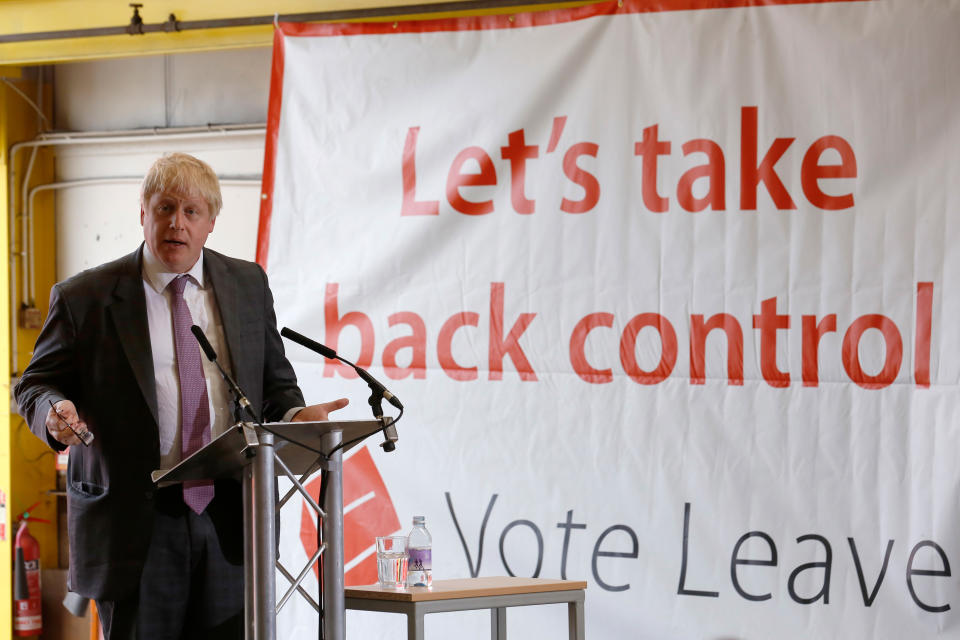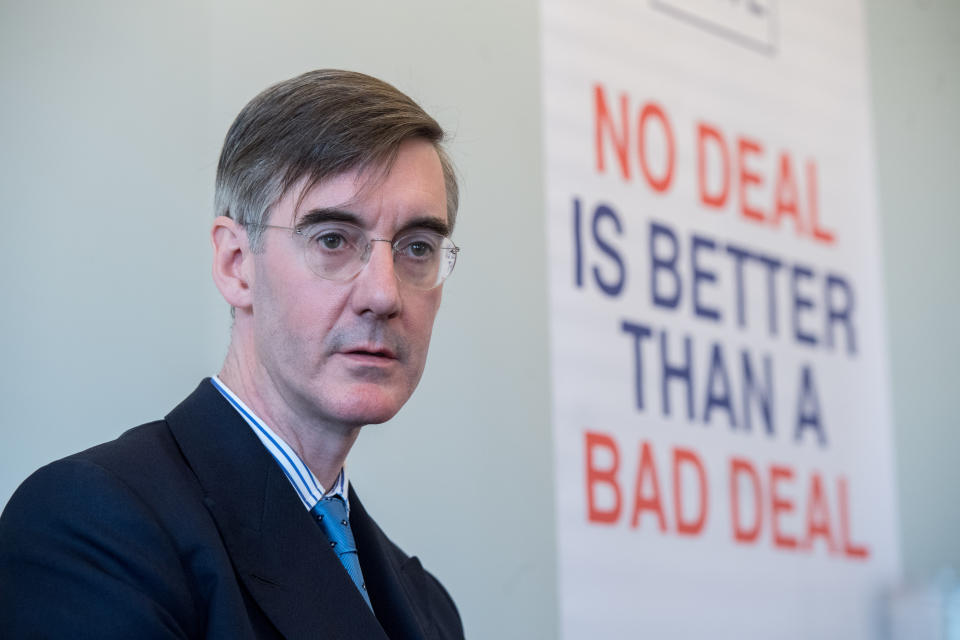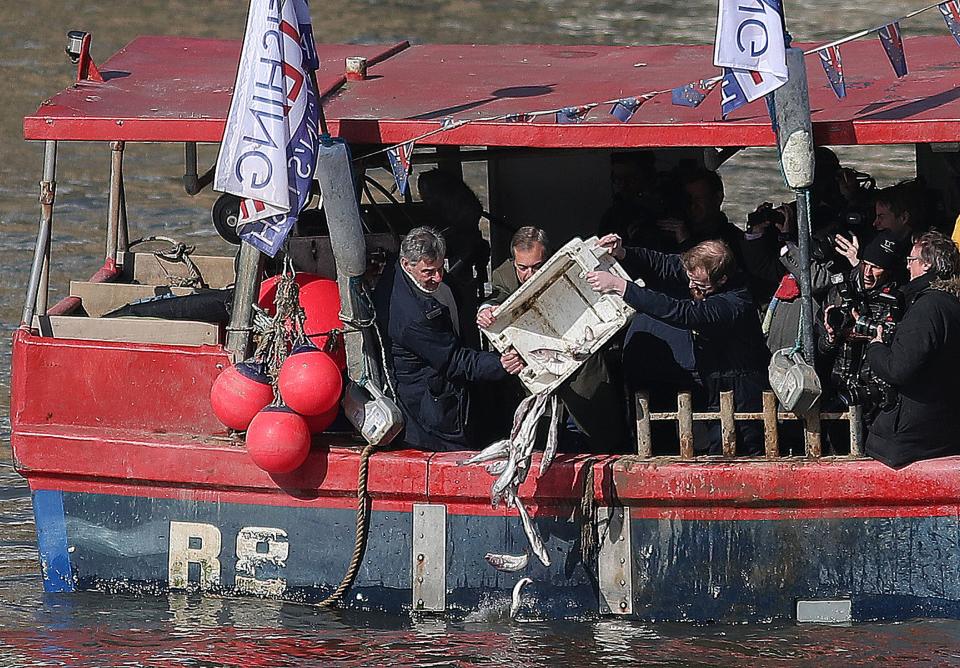Britain will 'give up control' when we leave EU next year, says expert

Britain is going to lose sovereignty when it leaves the EU in exactly a year’s time, according to a political expert.
The result of the EU referendum will be put into effect on March 29, 2019 when the UK formally leaves the Brussels bloc 39 years after joining.
Prime Minister Theresa May is marking the 365-day countdown to the historic day with a day-long tour of the UK.
In reality though little will change until a 21-month transition period ends at midnight on New Year’s Eve 2020.
And Pieter Cleppe, head of the Open Europe think tank in Brussels, says the terms of the transition period means Britain won’t take back control next year – but give it up.
In an interview with Yahoo UK, the respected lawyer and political analyst said Jacob Rees-Mogg’s claim that Britain will become a “vassal state” next year is legally correct and highly ironic.

“Britain voted for more sovereignty and the first thing they get is a step back in terms of sovereignty,” he explained.
“Britain will have to copy and paste all the EU rules without being able to vote on it and they will not be at the table when the EU is negotiating trade deals with other countries.
“Trade deals that, if they are implemented during that two-year period, would have to be binding on Britain.
“It’s very ironic that it’s being accepted.”
But he said the UK Government have taken a calculated risk to take one step backwards in order to take two forward after the transition.
Mr Cleppe added: “They’re afraid that the whole thing would unwind if it happens in a chaotic way.
EXPRESS : One year to Brexit #tomorrowspaperstoday pic.twitter.com/dDmQTJX5MK
— Neil Henderson (@hendopolis) March 28, 2018
“So in order to avoid that they’re saying: ‘Let’s just accept the bad transition deal, it’s only a limited period and it’s not as if the EU is going to manage to impose all the rules on us.’
“Legally you can say the UK is a vassal state. In practice that’s not going to be the case.
“Even if the EU now tries to impose rules on EU member states they often drag their feet.
“So I think it’s a very reasonable consideration from the Brexiteers to allow this…It proves that the people backing Brexit are also open to compromises.”
Mr Cleppe said there was a clear consensus that the EU had “gained most” from Brexit negotiations so far, despite Britain securing some concessions – such as the right to begin signing trade deals from next year.
He expects negotiations to become “more ideological” as Britain’s exit from the EU approaches, with “posturing” from both sides on issues like fishing rights and Gibraltar.

“If there’s not going to be a good deal it will be because of this posturing on both sides,” he warned.
But he said he believes the EU will be forced into some climbdowns of its own in the coming months in order to strike a good deal that protects trade and jobs in Europe.
“Rationality dictates both sides provide as much access to each other, as possible” Mr Cleppe concluded.
“If it’s a good deal for the UK – if a lot of trade remains open – then it will also be a good deal for the EU.
“The European Commission is always blamed, even when it’s innocent, so certainly if it actively created unnecessary barriers to trade between Britain and the EU and this then destroys some jobs you can be sure the EU and the popularity of the EU will take a hit.”
“If you want to make your club appealing then you shouldn’t punish those leaving – you should make it more appealing.”

 Yahoo Finance
Yahoo Finance 